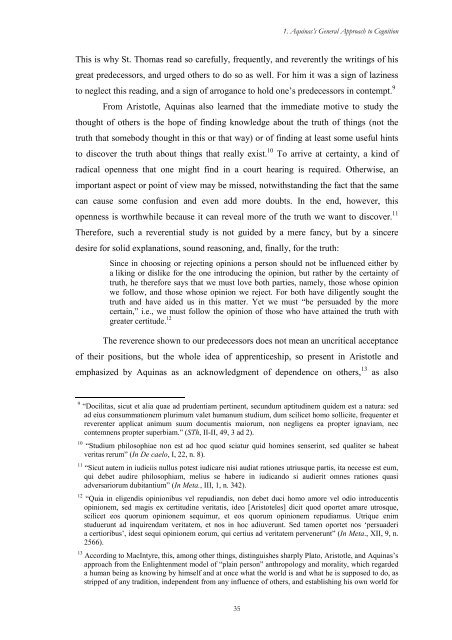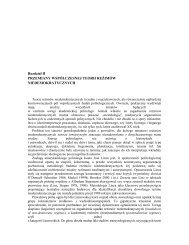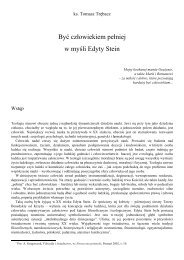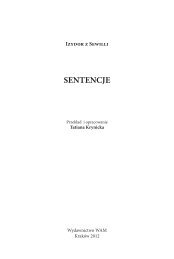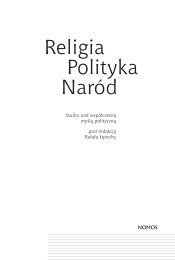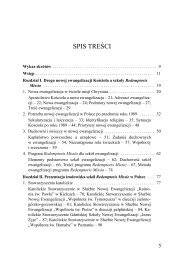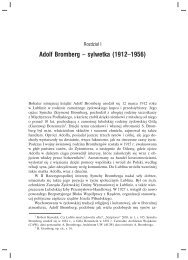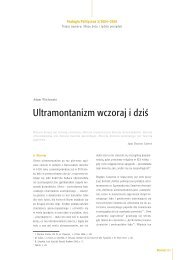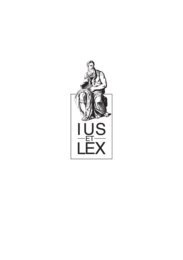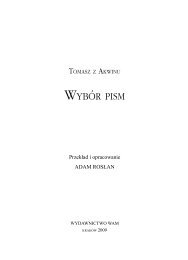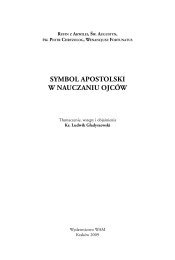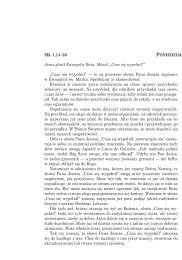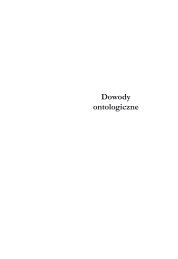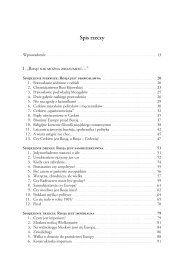Did St. Thomas Aquinas Justify the Transition from 'Is' to 'Ought'
Did St. Thomas Aquinas Justify the Transition from 'Is' to 'Ought'
Did St. Thomas Aquinas Justify the Transition from 'Is' to 'Ought'
You also want an ePaper? Increase the reach of your titles
YUMPU automatically turns print PDFs into web optimized ePapers that Google loves.
35<br />
1. <strong>Aquinas</strong>’s General Approach <strong>to</strong> Cognition<br />
This is why <strong>St</strong>. <strong>Thomas</strong> read so carefully, frequently, and reverently <strong>the</strong> writings of his<br />
great predecessors, and urged o<strong>the</strong>rs <strong>to</strong> do so as well. For him it was a sign of laziness<br />
<strong>to</strong> neglect this reading, and a sign of arrogance <strong>to</strong> hold one’s predecessors in contempt. 9<br />
From Aris<strong>to</strong>tle, <strong>Aquinas</strong> also learned that <strong>the</strong> immediate motive <strong>to</strong> study <strong>the</strong><br />
thought of o<strong>the</strong>rs is <strong>the</strong> hope of finding knowledge about <strong>the</strong> truth of things (not <strong>the</strong><br />
truth that somebody thought in this or that way) or of finding at least some useful hints<br />
<strong>to</strong> discover <strong>the</strong> truth about things that really exist. 10 To arrive at certainty, a kind of<br />
radical openness that one might find in a court hearing is required. O<strong>the</strong>rwise, an<br />
important aspect or point of view may be missed, notwithstanding <strong>the</strong> fact that <strong>the</strong> same<br />
can cause some confusion and even add more doubts. In <strong>the</strong> end, however, this<br />
openness is worthwhile because it can reveal more of <strong>the</strong> truth we want <strong>to</strong> discover. 11<br />
Therefore, such a reverential study is not guided by a mere fancy, but by a sincere<br />
desire for solid explanations, sound reasoning, and, finally, for <strong>the</strong> truth:<br />
Since in choosing or rejecting opinions a person should not be influenced ei<strong>the</strong>r by<br />
a liking or dislike for <strong>the</strong> one introducing <strong>the</strong> opinion, but ra<strong>the</strong>r by <strong>the</strong> certainty of<br />
truth, he <strong>the</strong>refore says that we must love both parties, namely, those whose opinion<br />
we follow, and those whose opinion we reject. For both have diligently sought <strong>the</strong><br />
truth and have aided us in this matter. Yet we must “be persuaded by <strong>the</strong> more<br />
certain,” i.e., we must follow <strong>the</strong> opinion of those who have attained <strong>the</strong> truth with<br />
greater certitude. 12<br />
The reverence shown <strong>to</strong> our predecessors does not mean an uncritical acceptance<br />
of <strong>the</strong>ir positions, but <strong>the</strong> whole idea of apprenticeship, so present in Aris<strong>to</strong>tle and<br />
emphasized by <strong>Aquinas</strong> as an acknowledgment of dependence on o<strong>the</strong>rs, 13 as also<br />
9 “Docilitas, sicut et alia quae ad prudentiam pertinent, secundum aptitudinem quidem est a natura: sed<br />
ad eius consummationem plurimum valet humanum studium, dum scilicet homo sollicite, frequenter et<br />
reverenter applicat animum suum documentis maiorum, non negligens ea propter ignaviam, nec<br />
contemnens propter superbiam.” (STh, II-II, 49, 3 ad 2).<br />
10 “<strong>St</strong>udium philosophiae non est ad hoc quod sciatur quid homines senserint, sed qualiter se habeat<br />
veritas rerum” (In De caelo, I, 22, n. 8).<br />
11 “Sicut autem in iudiciis nullus potest iudicare nisi audiat rationes utriusque partis, ita necesse est eum,<br />
qui debet audire philosophiam, melius se habere in iudicando si audierit omnes rationes quasi<br />
adversariorum dubitantium” (In Meta., III, 1, n. 342).<br />
12 “Quia in eligendis opinionibus vel repudiandis, non debet duci homo amore vel odio introducentis<br />
opinionem, sed magis ex certitudine veritatis, ideo [Aris<strong>to</strong>teles] dicit quod oportet amare utrosque,<br />
scilicet eos quorum opinionem sequimur, et eos quorum opinionem repudiamus. Utrique enim<br />
studuerunt ad inquirendam veritatem, et nos in hoc adiuverunt. Sed tamen oportet nos ‘persuaderi<br />
a certioribus’, idest sequi opinionem eorum, qui certius ad veritatem pervenerunt” (In Meta., XII, 9, n.<br />
2566).<br />
13 According <strong>to</strong> MacIntyre, this, among o<strong>the</strong>r things, distinguishes sharply Pla<strong>to</strong>, Aris<strong>to</strong>tle, and <strong>Aquinas</strong>’s<br />
approach <strong>from</strong> <strong>the</strong> Enlightenment model of “plain person” anthropology and morality, which regarded<br />
a human being as knowing by himself and at once what <strong>the</strong> world is and what he is supposed <strong>to</strong> do, as<br />
stripped of any tradition, independent <strong>from</strong> any influence of o<strong>the</strong>rs, and establishing his own world for


